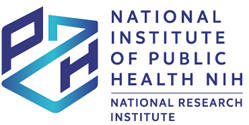ABSTRACT
Objective. This study examined associations between socio-demographic characteristics and knowledge, attitudes, and practices (KAP) related to COVID-19 among healthcare workers in Bangkok, Thailand.
Materials and methods. A cross-sectional online survey was distributed among healthcare workers in Bangkok, Thailand from July - August 2021.
Results. A total of 637 responses were received. Most participants were clinical workers (68.4%), and nearly half (47.3%) had been at risk of infection with COVID-19 (ever screening test). Binary logistic regression analysis found associations between high knowledge scores and the 26–35-year age group (OR=1.776-1.562, 95%CI 1.021–2.853), having a bachelor’s degree or higher (OR=1.672, 95%CI 1.058–2.644), and clinical workers (OR=1.784, 95CI% 1.188–2.678). The 36 year and above age group was associated with higher attitude scores (OR=2.406, 95%CI 1.567–3.695). Higher practice scores were associated with females (OR=1.913, 95%CI 1.057–3.464), and clinical workers (OR=1.903, 95CI% 1.170–3.095).
Correlation analysis found a positive correlation between practice scores and knowledge (r=0.322, p <0.001) and attitudes (r=0.263, p <0.001).
Conclusion. Although healthcare workers demonstrated overall high knowledge, attitude, and practice scores, this study identified several factors that influence KAP. This study can guide public health strategies regarding healthcare workers during the third wave of the COVID-19 pandemic in Thailand.
Możesz zmienić ustawienia cookies w swojej przeglądarce. Ograniczenie stosowania plików cookies w konfiguracji przeglądarki może wpłynąć na niektóre funkcjonalności dostępne na stronie.



